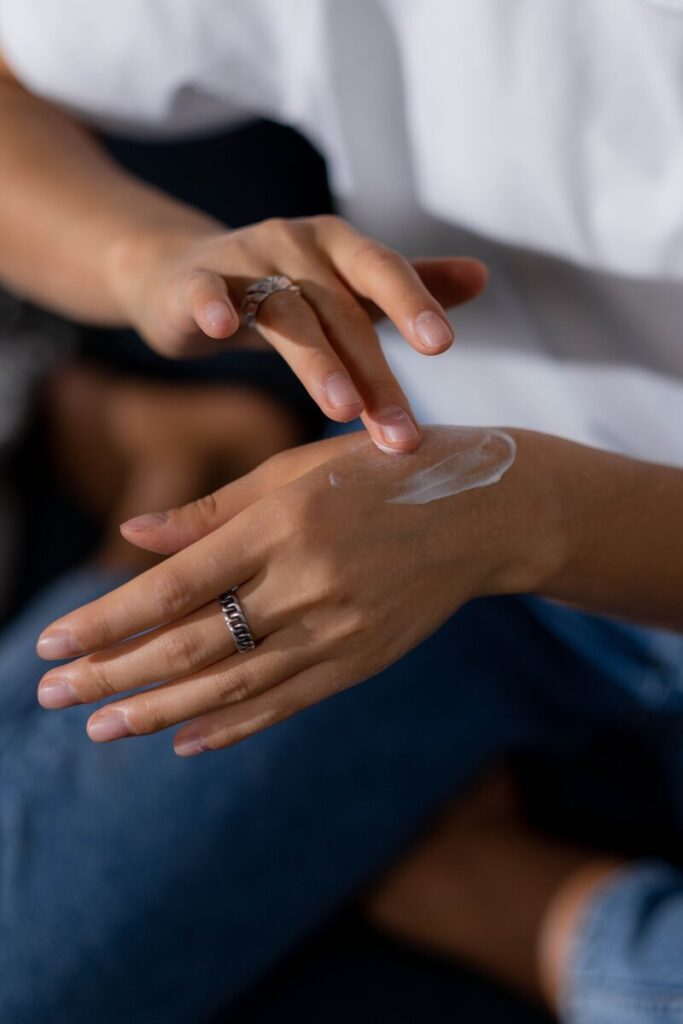Real skin care. Real simple. Real expertise.
If you’re considering laser skin treatment, you’re not alone. From Instagram influencers to med spas offering irresistible deals, laser procedures are trending more than ever. But before you sign up for that “laser facial” or book a laser package promising poreless perfection, let’s take a step back and get the facts straight.
Laser skin treatments can be powerful tools for skin rejuvenation, but not all lasers are created equal. And more importantly? Not all providers are trained equally.
As a board-certified dermatologist and self-proclaimed laser nerd, I want to walk you through the real story behind these high-tech treatments—because understanding how lasers work, what they treat, and who should (or shouldn’t) be using them could make all the difference in your results.
What Is a Laser?
LASER stands for Light Amplification by Stimulated Emission of Radiation. In simple terms? It’s focused light energy at a specific wavelength.
Lasers are used in dermatology to target specific chromophores in the skin—these can be:
- Melanin (pigment)
- Hemoglobin (blood vessels)
- Water (found in all skin tissue)
- Hair follicles (for laser hair removal)
Different lasers work at different wavelengths to treat various skin concerns, including:
- Hyperpigmentation and sunspots
- Wrinkles and fine lines
- Acne scars
- Rosacea and visible vessels
- Unwanted hair
- Skin laxity
This means not all lasers are interchangeable. The type of laser your friend had for her brown spots may not be right for your skin texture or redness.
Why the Provider Matters More Than the Machine
Let’s make one thing clear: A laser is only as good as the person holding it.
Many med spas advertise high-end machines, but if the provider doesn’t understand skin biology and laser physics, the risks skyrocket.
Poorly performed laser treatments can cause:
- Burns
- Scarring
- Post-inflammatory hyperpigmentation (PIH)
- Hypopigmentation
- Worsening of existing conditions
Choosing a provider with years of training, experience with complications, and a deep understanding of the skin is critical. Board-certified dermatologists and dermatologic surgeons are the gold standard when it comes to lasers.
Are Lasers Safe for Darker Skin Tones?
Short answer: Yes. Long answer: Only with the right laser and provider.
Patients with skin of color (Fitzpatrick types IV-VI) are more prone to complications like hyperpigmentation, burns, or hypopigmentation when treated with the wrong laser. This is why the outdated myth that “lasers aren’t safe for darker skin” persists.
When used correctly, picosecond lasers, Nd:YAG lasers, and low-energy fractional devices can safely and effectively treat skin of color. The key is personalization and choosing someone with experience treating your skin type.
Beyond Beauty: Lasers for Medical Dermatology
While lasers are known for smoothing wrinkles and fading pigment, they also have important medical uses:
- Actinic keratoses (precancerous lesions) can be treated with fractional ablative lasers.
- Photodynamic therapy (a light-based treatment) is used to reduce skin cancer risk.
- Some lasers even treat basal cell carcinomas and angiomas without surgery.
Lasers are a major part of regenerative dermatology. We’re not just treating signs of aging—we’re also supporting skin health at the cellular level.
Questions to Ask Before Any Laser Treatment
If you’re considering a laser procedure, here are key questions to ask your provider:
- What kind of laser is being used?
- Is this device safe for my skin type?
- What credentials and training do you have with lasers?
- How many treatments will I need?
- What are the possible side effects?
- Is there any downtime or aftercare involved?
A reputable provider will take the time to assess your skin, explain the process, and help you set realistic expectations.
When Lasers Aren’t the Answer
Sometimes the best treatment isn’t a laser. Certain skin conditions respond better to:
- Topical medications
- Chemical peels
- Microneedling
- Injectable treatments (like neuromodulators or fillers)
Lasers aren’t the only tool in the toolbox. And in some cases, using the wrong laser can delay healing or worsen symptoms.
Laser Maintenance: It’s Not One-and-Done
Most laser treatments require multiple sessions for optimal results. Depending on the condition treated and the device used, you might need:
- 3-6 sessions spaced 4-6 weeks apart
- Annual or semi-annual maintenance sessions
And remember: Lifestyle habits like sun protection, skincare, and avoiding tanning beds will dramatically impact your results and skin health.
Trust Your Skin to an Expert
Lasers are one of the most powerful tools in modern dermatology—but they’re not magic. Choosing the right treatment (and the right provider) is the difference between glow-up and major letdown.
So before you get zapped, do your homework. Prioritize safety over speed. Experience over hype. Science over sales.
Because real skin care isn’t about chasing trends—it’s about treating your skin with the respect it deserves.










